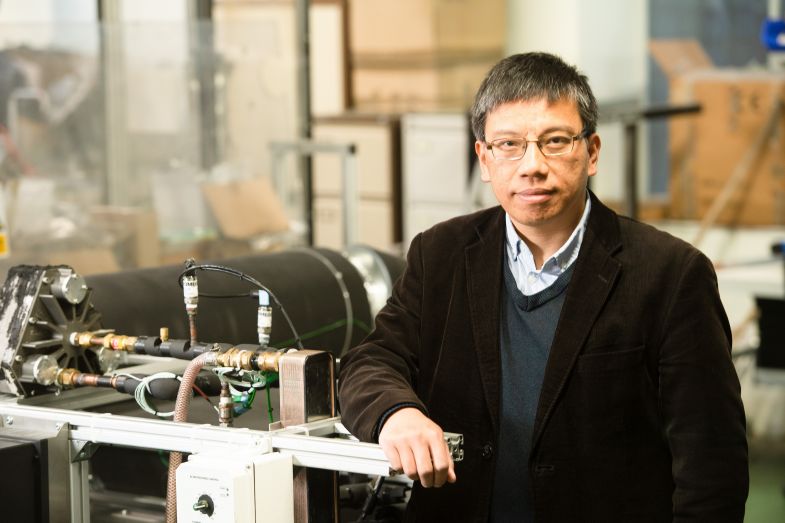
Researchers at the University of Glasgow have developed a new type of heat pump that could help households save on energy bills and contribute towards net-zero emissions goals.
Heat pumps are a low-carbon alternative to gas boilers as they draw energy from external low temperature sources, most commonly outdoor air.
Around the world, about 40% of carbon emissions come from heating powered by fossil fuels. The UK Government has set a target of 600,000 heat pump installations per year by 2028, to reduce the country’s carbon footprint. However, the heating capacity and energy efficiency of the current generation of heat pumps can be impacted by cold weather, particularly for air source heat pumps.
The research outlines how the new flexible heat pump technology provides an elegant and low-cost solution to the problems of current heat pumps by integrating heat storage - a small water tank and a coil of copper tube. The water tank recovers some excess thermal energy produced during the pump’s operation and stores it as an additional heat source for use in later operation.
The recovered heat has a much higher temperature than the outdoor air that provides the heat source - and can be reused as a temporary heat source - substantially reducing the pump’s power consumption.
The research has demonstrated the advantages of the new heat pump by building a working prototype using off-the-shelf components. Testing against current-generation heat pump designs has shown the design to be around 3.7% more efficient, with a relatively low heat supply temperature of 35°c.
Professor Zhibin Yu, Professor of Thermal Energy at the University of Glasgow’s James Watt School of Engineering, led the research and the development of the flexible heat pump. He says: “We are at a critical juncture in our global move towards net-zero, where we need to start scaling up our low-carbon infrastructure quickly and effectively. That urgency is being particularly keenly felt now, where energy prices are rising, and many households are facing rapidly escalating bills.
“The advantages of the flexible heat pump against current heat pump products are analogous to the advantages of the condensing boiler against the non-condensing boiler – both recover excess heat to greatly improve efficiency.
“Our flexible heat pump solves many of the problems with the current generation of heat pumps, making them capable of delivering improved performance while using less power. The cost of a small water tank heat storage is marginal, but the power saving is significant. It can be widely applied for all kinds of the heat pump applications. We believe that this could help drive improved take-up of heat pump technology in homes across the UK.”
The team’s paper, titled ‘A flexible heat pump for heat recovery’, is published in Communications Engineering, a Nature portfolio journal, and was supported by funding from the Engineering and Physical Sciences Research Council.















